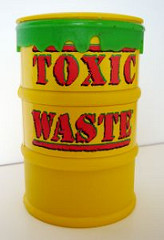The ‘No Asshole’ Rule – by Richard I. Sutton, publ. 2007, approx. 185 pp.
What I learned from this book
I learned that no matter how talented, experienced or confident an employee or employer is, there is no reason to hire someone who creates a toxic office environment for all of the other team members. This is a tough call because oftentimes the biggest a**hole in the room tends to be the most productive and or aggressive. However, the author does an amazing job in convincing the reader that there is never a “good enough reason” to bring in or retain someone who makes the others insane.
What I liked about this book
I liked the case studies that the author brought into his work. He even used an example from inside of his family when he and his wife came across a dilemma in whether to “unload an a**hole from her law practice. This added a nice personal touch to the book and made it a more enjoyable ride.
What I disliked about this book
The only thing I can think of is that I just took too long to discover it. It has a been a best seller (especially in the business world) ever since its release in 2007. I may have been able to sidestep an a**hole or two had I known about it back then. However, as they say (whomever “they” are) better late than never!
Whom would I recommend to read this book
This is an excellent read for anyone in the business world. I might suggest that those who are leaving college and entering the work world would most benefit by learning how to identify and then steer clear of neighboring a**holes in adjoining cubicles or office suites. However, it is extremely helpful to any and all ages in the professional world.
Any thoughts?
A.N.
https://www.facebook.com/writeplus1/books?lst=100006341289857%3A100006341289857%3A1497133033



